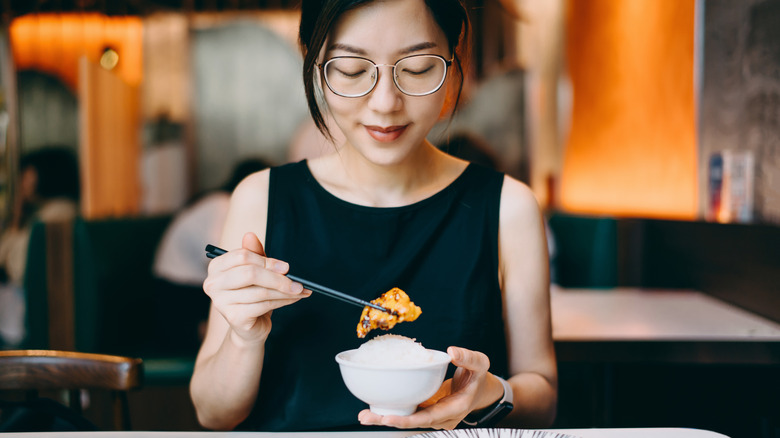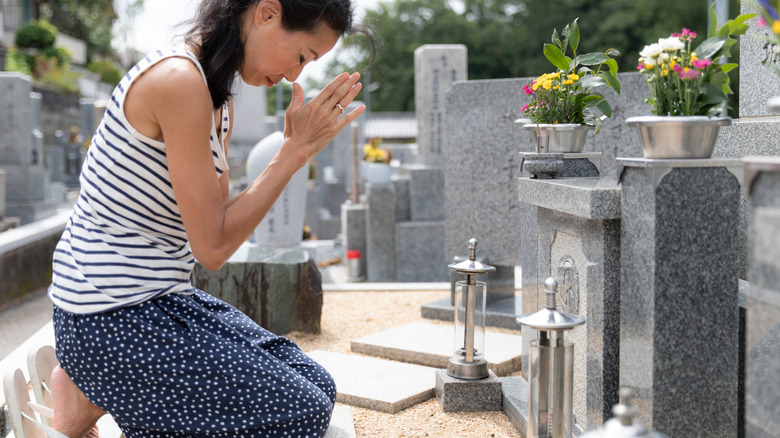The Macabre Reason Tourists Should Avoid Breaking This Unspoken Chopstick Rule In Japan
This rule should be easy enough to remember: When you're in Japan, don't pass food from one pair of chopsticks to another. No one should pick up a piece of sushi and hand it off to a dinner companion. This is considered a "kiraibashi," or a "chopstick faux pas." Many kiraibashi are on par with requesting substitutions, a common mistake to avoid when eating out in Japan. Photographing your food is also an unexpected etiquette rule that could sour your dining experience. Since many Westerners struggle to manipulate chopsticks in the first place, you may not have any trouble avoiding this offense. If you absolutely must share something from your dish, you can drop it onto the plate or bowl of the person next to you.
But you probably can't guess the reason for this rule. You might assume it has to do with hygiene, social status, or personal space. Maybe it's just an idiosyncrasy, like how Japanese diners consider it a compliment to loudly slurp noodles. All these guesses are incorrect, though; the real reason is steeped in Japanese funeral traditions, of all things. Transmitting food by way of chopsticks isn't gross or odd — it's just disturbing, reminding diners of what happens after people die.
Chopsticks in Japanese funerary rites
How's how the ritual works: Someone passes away, and the body is cremated. At the funeral, the ashes are displayed on a tray for family and close friends, who use chopsticks to pluck out bone fragments and pass them from one attendee to another, like a kind of meditative fire brigade. These fragments are then placed in an urn. The process is traditional, but it's also a way for relations to bond and experience closure. In this one specific context, chopsticks are used to move objects down the line. The environment is usually dark and closed off, and participants are expected to wear black — and sometimes pearls, which symbolize tears.
Do Japanese people really think of this event when they're seated at a dinner table? The short answer is yes. It's hard for Westerners to appreciate how powerful the association is, but it might be like giving someone a birthday cake shaped like a casket or passing a basket of dinner rolls and whispering to the recipient, "Rest in peace." These gestures are just unnecessarily macabre, and maybe even triggering. If you're going to flirt with death in Japan, you might as well do it the socially acceptable way, by ordering this iconic food — if you're brave enough.

